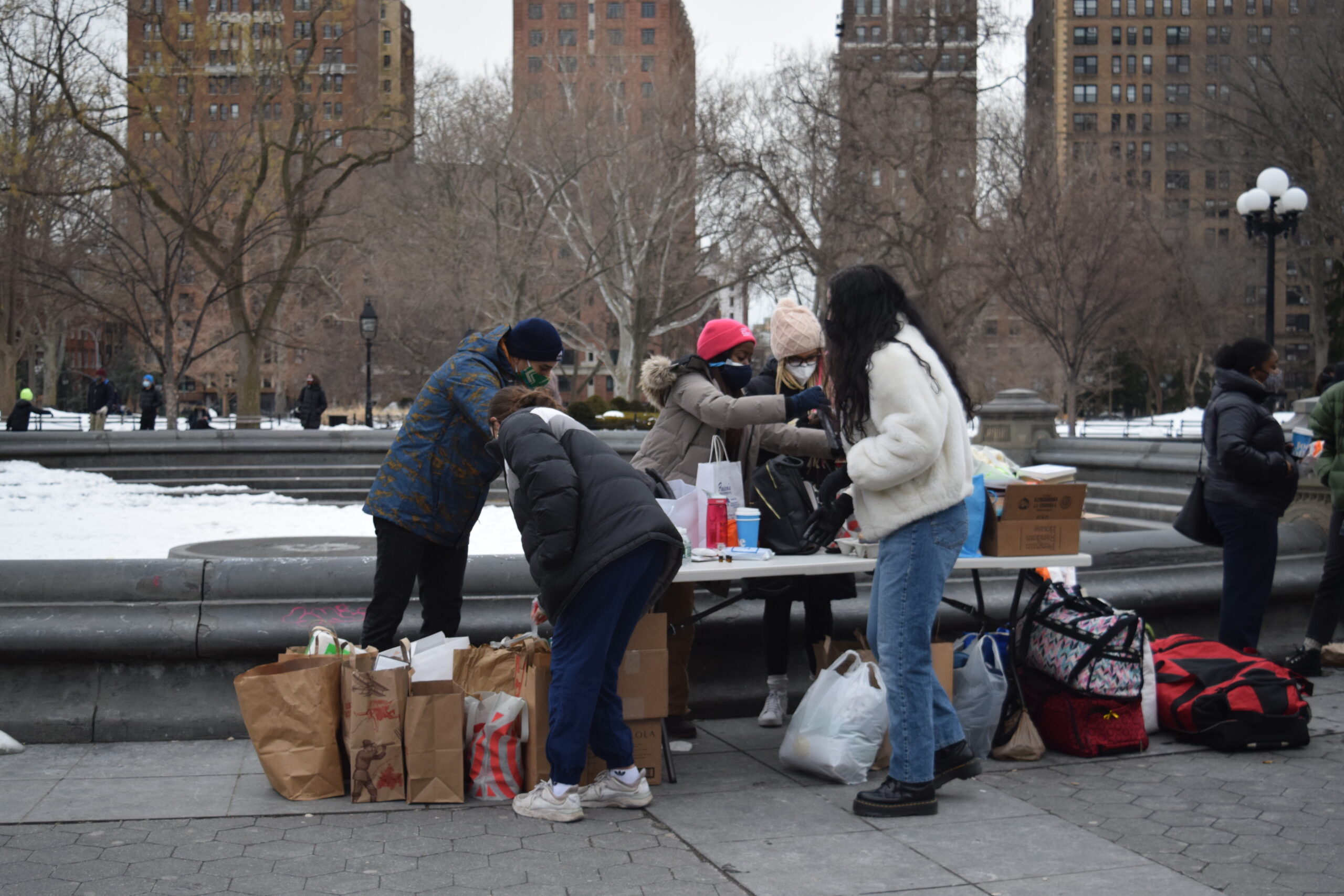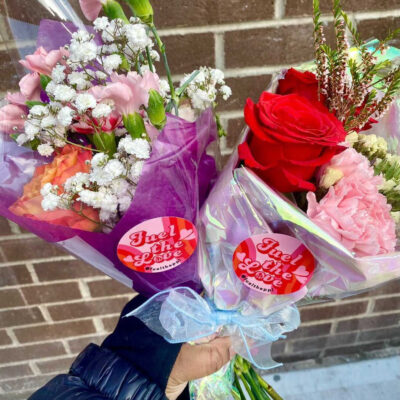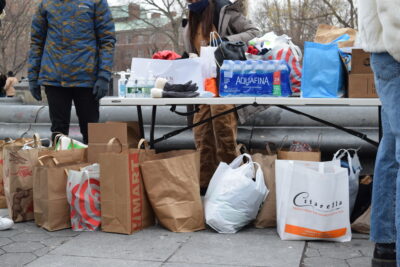Fuel the People, Inc., a non-profit organization based in New York City and Washington D.C., ran a donation drive for women and children New York City shelters in the spirit of St. Valentine’s Day.
The goal for the Saturday Feb. 13 event was to “Fuel the Love” back into the community with donations from fellow New Yorkers. Even with snow on the ground and 32 degree weather, New Yorkers travelled across boroughs to Washington Square Park and The Brooklyn Museum, with menstrual products, toiletries, personal protective equipment and clothes to donate.
“I’m so excited to be able to provide these things for women who deserve these [necessities],” said Gaïana Joseph, the New York City-based co-founder of Fuel the People. “It’s not like we’re giving anyone anything special. Like, they deserve good beauty products, they deserve good shampoo and conditioner.”
Women in the United States have been hit hard during the pandemic because of the unstable state of the economy and joblessness. The rate of women’s unemployment is substantially higher than men’s unemployment, and NBC News reported that in January, about 275,000 women left the workplace, compared with 71,000 men.
Black and brown women have been hit the hardest. While the national unemployment rate in February stood at 6.2 percent, Black women’s unemployment rate was 8.9 percent, with the rate for Latina women at 8.5 percent.
Fuel the People dropped off care packages of the donations, hot meals, special Valentine’s day treats and bouquets of flowers to CAMBA, a Brooklyn-based multi-service agency that delivers social services to New Yorkers in need.
Menstrual products were the top donation received, said Hillary Henry, a volunteer coordinator for Fuel the People. She added, “which is great because they’re so expensive.”
Women will spend an average of more than $1773 on tampons in their lives, the HuffPost reported in 2015, and the price of tampons in New York City as of March ranges between $5 and $15. With financial instability on the rise for women, menstrual and hygiene products are an added cost some may not be able to afford.
“More and more, you realize that [menstrual products] shouldn’t be a luxury, but it is for a lot of people, and it’s a critical, critical thing when you’re a woman,” Melissa Nat said after she dropped off a bag of new pads and tampons at the Washington Square Park drive.
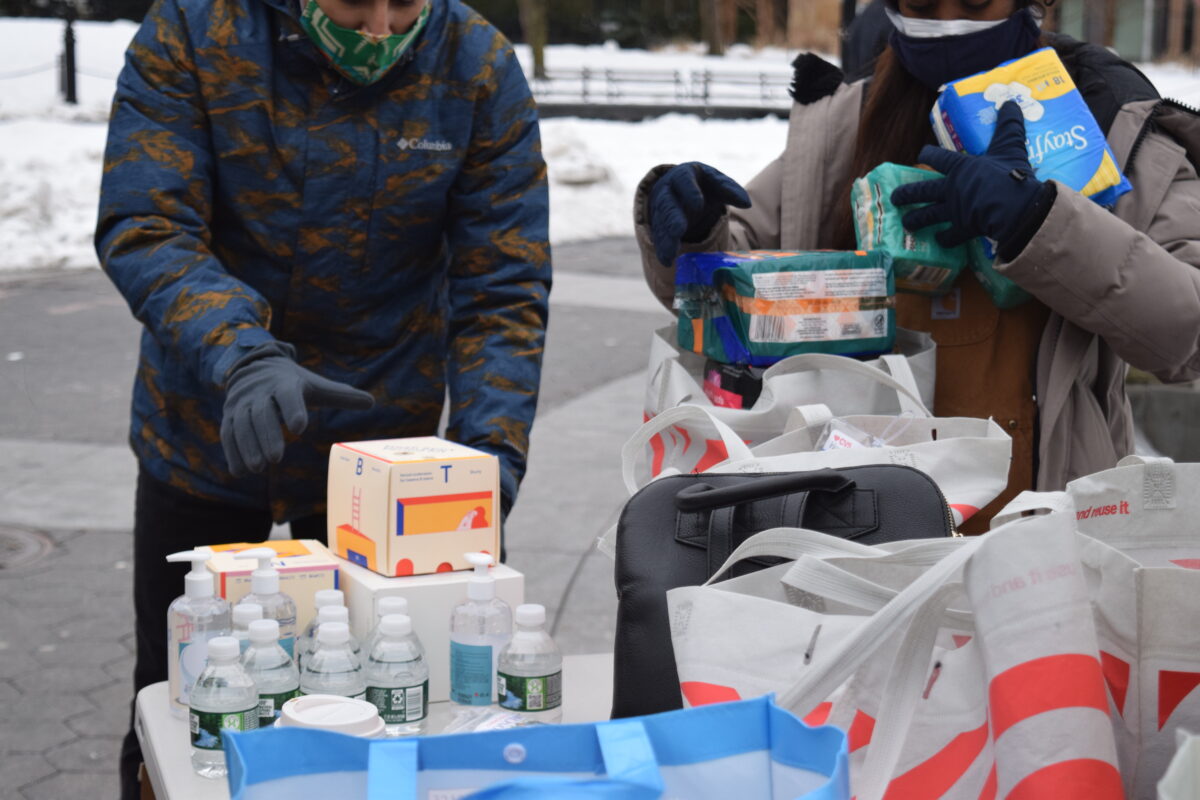
New York state banned taxes on menstrual products in 2016, and implemented a ban on gender-based pricing for otherwise similar products, a practice commonly referred to as “the pink tax.” These policy changes make obtaining menstrual products less costly but do not come close to completely eradicating the price of these products, like Scotland did in November when the Scottish parliament passed a bill to make period products available free of charge.
Leah Hansen and her friend Jailyn Wiley walked up to the donation table carrying three duffle bags and two totes full of clothing, shoes, toiletries and menstrual products. They traveled all the way from Ridgewood, Queens to drop off the donations.
“A little phrase that I like is, “Solidarity, not charity.” I think a lot of people feel that doing these things is so nice and you’re doing people a favor,” Hansen said. “But, I feel like it’s just solidarity. You’re helping other people, but it’s not charity. It’s community.”
Wiley hopes that this type of community work will be part of the “new normal” even after the pandemic ends. “People are still going to be in need, people are still going to need help,” she said.
Mutual aid groups, networks, and mutual aid work has proliferated in the past year due to the pandemic. In New York City alone, there are currently 104 community fridges serving New Yorkers across all five boroughs, according to the NYC Community Fridge mapping project. Americans face tough times with the rise of unemployment, financial instability and food insecurity, so mutual aid groups are stepping in to fill in the gaps where the government has missed.
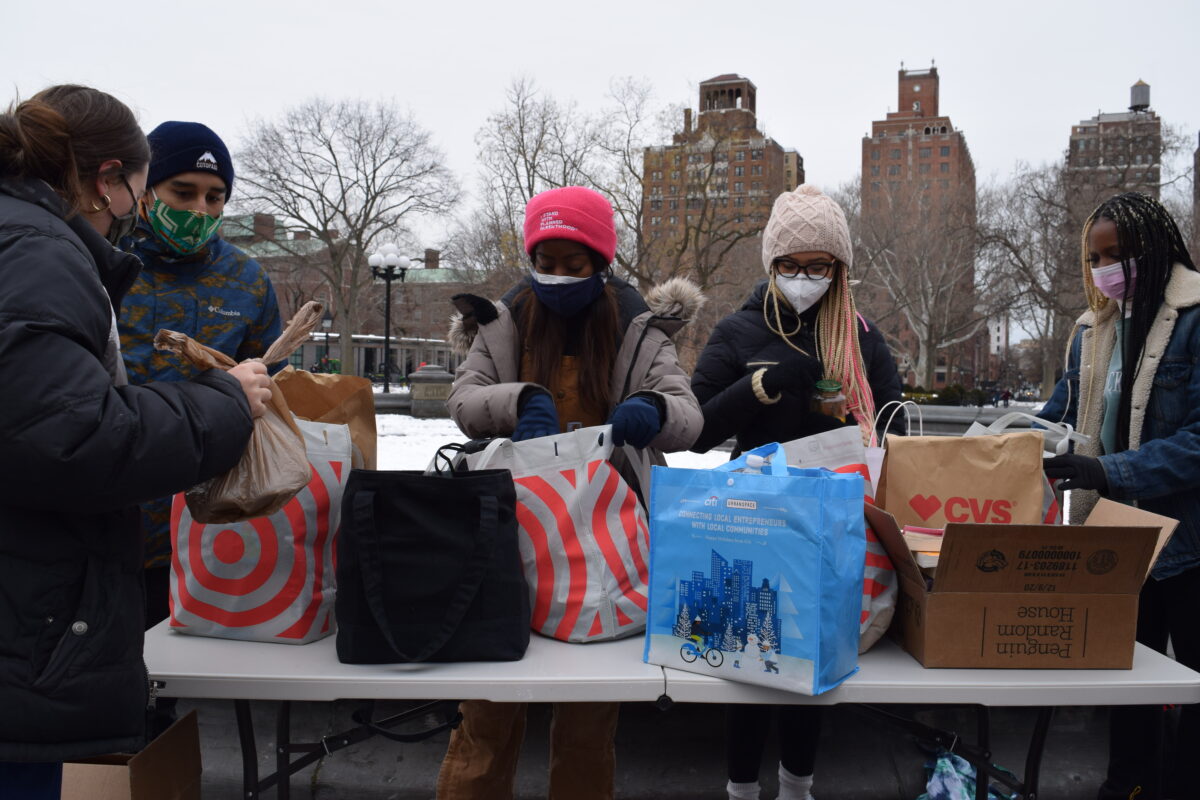
While Fuel the People does not consider itself to be a mutual aid group, their work aims to provide nourishment to their community and support restaurants owned by Black people and people of color (POC). The non-profit was established in June 2020, in the midst of the protests against police brutality and the fight for justice for George Floyd, Breonna Taylor and many more. During that time Fuel the People’s mission was to provide meals to the protestors on the front lines of the summer protests. To do this, Fuel the People raised money to go towards partnering with Black and POC-owned restaurants who then make hot meals for Fuel the People to distribute at protests.
Joseph said she was inspired by her younger brother and Fuel the People co-founder, Roodharvens Joseph, after he decided to bring boxes of pizza to protestors one day. “We just wanted to bridge the relationship between the community and the restaurants, and the community and people fighting for the community,” Joseph said.
“The government should be giving people enough resources, people should have enough resources to live prosperous lives. Black-owned businesses should not be this disproportionately affected by COVID.”
— Gaïana Joseph, co-founder of Fuel the People, Inc.—
Restaurants have faced hardships and closures over the past year, and Black and POC-owned restaurants have fared worse. Forbes reported that in the U.S. between February and April 2020, Black-owned businesses declined by 41 percent, Latinx business owners dropped 32 percent, and Asian business owners fell by 26 percent, compared with the 17 percent decline in white-owned businesses.
“Whenever I think of Fuel the People, I think of it as an organization that should not exist,” said Joseph. “The government should be giving people enough resources, people should have enough resources to live prosperous lives. Black-owned businesses should not be this disproportionately affected by COVID.”
Fuel the People’s objectives shifted as protests decreased and warm temperatures disappeared. Now focusing their efforts towards creating initiatives surrounding food insecurity, which has been exacerbated due to the pandemic. The non-profit plans to focus on educational and research efforts, as well, and will be launching a business development program that connects Black and POC-owned restaurants with “pro bono” business development services.
“We aim to really do this work with dignity and compassion and to serve communities in the same ways that we would like to serve ourselves,” said Joseph.
Fuel the People, @fueltheppl on Instagram, is looking for volunteers to sign up and join them, and for individuals to contribute through donating and supporting their work.







